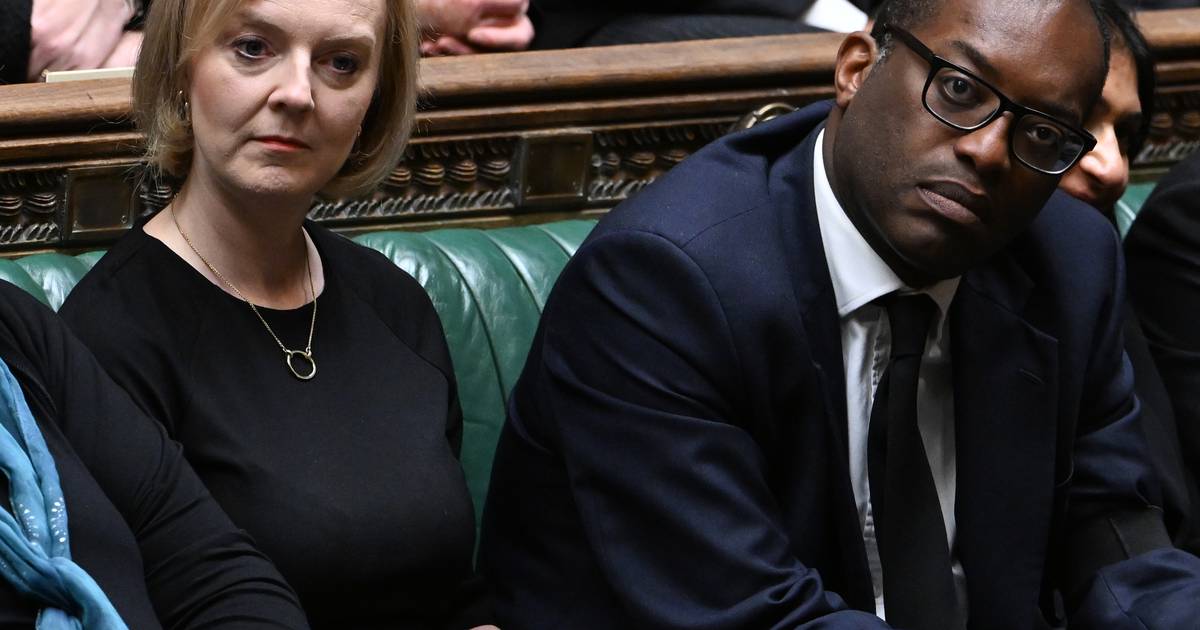In the early 1980s, France embarked on a lonely economic race, adopting a heavily socialist program of increased spending, nationalization and tax hikes, only to find itself brought back into line in the most brutal fashion. .
The then government led by François Mitterrand came to power promising to revive the struggling French economy and reduce unemployment, which had been high for several years.
Contrary to Margaret Thatcher’s doctrine of privatization in the UK, the French government has embarked on a wave of nationalisation. Up to 11 large industrial companies and several private banks were placed under state control while factory layoffs were made subject to state regulation. Social benefits were extended, tax rates for high earners were increased and a special wealth tax was imposed on the very wealthy.
Within two years, runaway inflation and a currency crisis brought the economy to its knees. Mitterrand’s short-lived socialist experiment – as it was dubbed – was forced into reverse. He ended up adopting a more market-oriented austerity program than some of his centre-right predecessors.
Right-wing economists saw this episode as a failure of Keynesian economics (the doctrine that in times of recession, growth and jobs can be sustained by government spending even if it means taking on more debt).
Leftists blamed the role of international capital in smothering France’s deviation, precipitating the collapse in the value of the franc.
The episode revealed how integrated the global economy was becoming and the limits this placed on countries trying to act independently or against prevailing market orthodoxy.
“The markets” are like a form of Islamic police, hunting down economic apostates for religious reprogramming. Their current career is the UK, not for a Mitterrand-style pivot to the left, but for a hyper-capitalist swerve to the right.
The turmoil caused by Finance Minister Kwasi Kwarteng’s mini-budget 10 days ago has forced the Bank of England to take emergency action to stem a potential collapse in the UK pensions sector.
The new government’s controversial plan to revive the UK’s underperforming economy through a series of unfunded tax cuts has sparked a financial crisis comparable to the Brexit crisis itself, sending the value of the pound and driving up interest rates (and by extension borrowing costs) to levels not seen in decades.
The turmoil caused by Finance Minister Kwasi Kwarteng’s mini-budget 10 days ago has forced the Bank of England to take emergency action to stem a potential collapse in the UK pensions sector.
The fall in the value of UK government bonds held by some of these pension funds was so rapid and steep that they began receiving margin calls for more collateral.
To avoid what some analysts called a ‘catastrophic loop’ the bank stepped in with a £65 loan trillion bond purchase program to avoid a massive sale of gilts (government bonds).
Around 40% of mortgage products have been pulled from the UK market as the bank is expected to be forced to raise its base rate to 6% in a bid to stifle the inflationary impact of the controversial strategy of the new government.

Budget 2023: what it means for businesses and taxpayers
Truss was chosen as leader by members of the Conservative Party earlier this month to lead the country on a tax-cutting program that pledged to challenge “Treasury orthodoxy”, which is seen as too focused on reduction in public borrowing and debt and insufficient focus on increasing investment. and productivity.
One of the first things Kwarteng did on becoming Britain’s new Chancellor was to fire the Treasury’s top official.
Truss and Kwarteng are on a crusade against what they see as “Whitehall’s groupthink failure”. Their belief is that deep tax cuts for the rich, well-off and big business combined with less regulation (they overturned the UK’s fracking ban) will boost investment and spur growth for the benefit of all: their version of the “trickle down economy”.
“Singapore-on-Thames” is Brexit’s shorthand for Britain to become a low-tax, lightly-regulated economy. But borrowing heavily and cutting taxes when interest rates and inflation are already high can be doomed to failure.
Income inequality is also collateral damage.
‘For too long in this country we have been in a fight for redistribution,’ Kwarteng told parliament as he slashed the UK’s highest tax rate, scrapped the cap on bankers’ bonuses , reversed proposed rises in corporation tax and national insurance.
Truss, Kwarteng and fellow Brexiteers Priti Patel and Dominic Raab flagged their low-tax deregulation agenda in a book they published in 2012 – Britannia Unchained: Global Lessons for Growth and Prosperity.
Part of the problem this time around, and what appears to have spooked markets, was Kwarteng’s effective gagging of the Office for Budget Responsibility to do an assessment of its tax plan.
It didn’t spark much debate, but sparked controversy for calling British workers ‘lazy’. Its authors were promoted by former Prime Minister Boris Johnson to the country’s highest office and are now steering the ship.
Ironically, there was little mention in the book of EU, which later became (for the authors) the main chain holding Britannia.
However, Brexiteers don’t like the process. At the start of the Brexit journey in 2016, when the High Court in London ruled that Parliament – not the Prime Minister – should trigger Article 50 to trigger the UK’s exit, the judges involved were reviled. Johnson then reversed centuries of parliamentary process by proroguing Parliament for five weeks at the height of the Brexit crisis.
Part of the problem this time around, and what appears to have spooked markets, was Kwarteng’s effective gagging of the Office for Budget Responsibility to do an assessment of its tax plan.
Alongside the increasingly haphazard politics of Brexit, which yielded four leaders in six years, and perhaps at its base, is the problem of the UK’s low-growth, low-productivity economy. However, the new government’s low-tax solution seems to be making markets sick.
#Brexiteers #fantasy #lowtax #Singaporestyle #economy #slapped #markets






